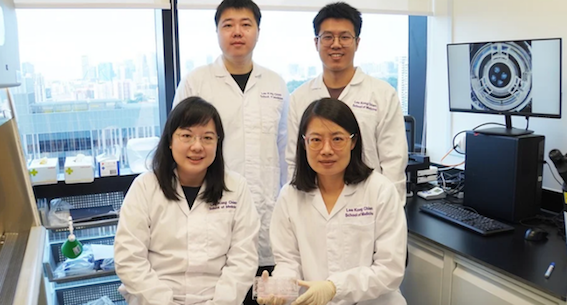
Scientists at Nanyang Technological University (NTU), Singapore have successfully grown ‘mini kidneys’ in the lab and grafted them into live mice, revealing new insights into the metabolic defects and a potential therapy for polycystic kidney disease.
‘Mini kidneys,’ or kidney organoids, are kidney-like structures grown in the lab using stem cells. In the study led by NTU’s Lee Kong Chian School of Medicine (LKCMedicine), researchers grew the organoids using skin cells derived from patients with polycystic kidney disease (PKD), a prevalent form of genetic condition that affects 1 in 1000 individuals across all ethnicities.
By studying the development of PKD in live mice and testing cellular pathways, researchers found evidence that boosting autophagy could reduce the severity of cysts in the mini kidney.
After establishing that boosting autophagy could reduce cysts, the NTU scientists shortlisted 22 drugs known for their effects on cell metabolism and tested them in the lab. Results showed that minoxidil, a clinical drug widely used to cure hypertension and hair loss, effectively reduced cyst formation in the novel mouse model.
In future studies, the NTU team will test the efficacy of minoxidil and adapt the mini kidney models to investigate other burgeoning kidney diseases without a strong genetic underpinning, such as diabetic kidney disease.




